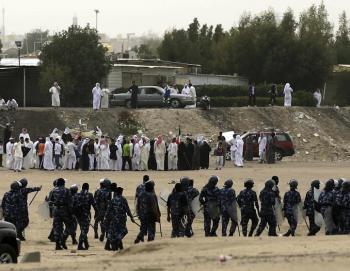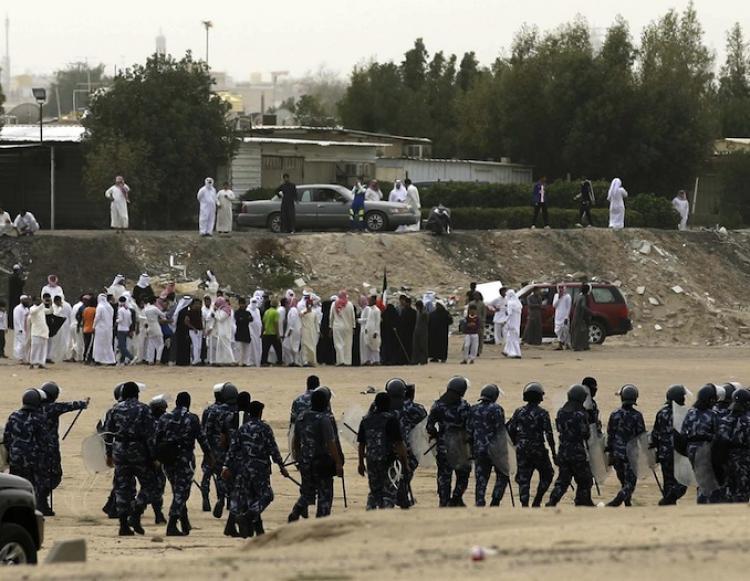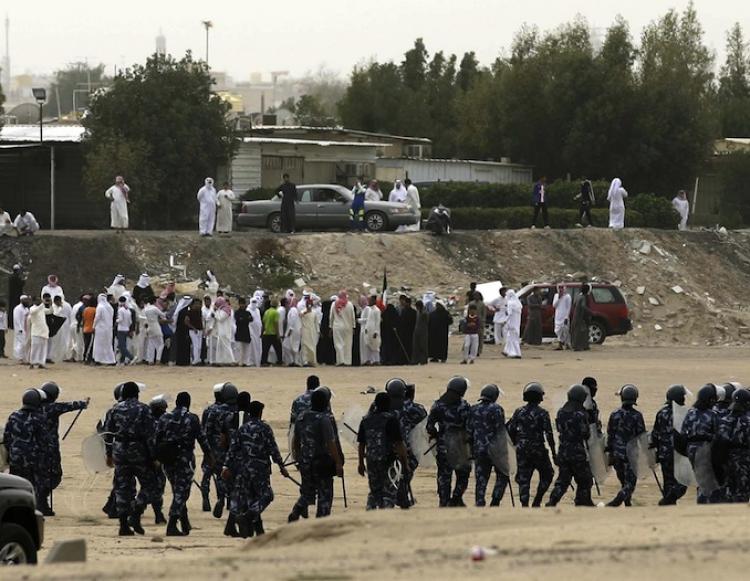Right before the United Nations added 15 new member states to its Human Rights Council on Friday, human rights groups pointed out that among the list, Congo, Kuwait, and Nicaragua fail to meet the membership criteria.
“Congo, Kuwait, and Nicaragua have poor records in respecting the basic human rights of their own citizens,” said U.N. Watch Executive Director Hillel Neuer, in a press release. “And [they] have consistently voted the wrong way on U.N. initiatives to promote and protect the human rights of others.”
An attendee at a recent Human Rights Council (HRC) session noted that Nicaragua strongly praised the dictatorial regimes of Libya and Syria, attempting to shield these countries from scrutiny. “It will be an insult to their victims—and a defeat for the global cause of human rights—if the U.N. now elects Nicaragua as one of the council’s 47 voting members.”
After the General Assembly chose 15 states from the 17 candidate countries in a single round of secret balloting on Friday, Nicaragua was not elected. However, Congo and Kuwait each won a seat to serve on the Human Rights Council for three-year terms, beginning in June.
Groups comprising the U.N. Watch, the Lantos Foundation for Human Rights and Justice, Directorio, and Initiatives for China, also said in their evaluation report that India, Indonesia, Philippines, and Burkina Faso—all of which were elected—are “questionable” at best in meeting the criteria.
The report documented India’s refusal to endorse U.N. resolutions for human rights victims in Iran, Burma, and North Korea last year, and its failure to join other democracies and human rights groups in opposing a U.N. resolution that prohibits criticism of Islam.
Among the 17 candidate countries, only 10 were deemed qualified by the groups: Austria, Benin, Botswana, Chile, Costa Rica, Czech Republic, Italy, Peru, Romania, and Georgia, which was not elected.
The member countries in the HRC are categorized into five regional groups: the African Group, which has 13 seats, the Asian Group with 13 seats, the Eastern European Group with 6 seats, the Latin American and Caribbean Group with 8 seats, and the Western and Other Groups, with 7 seats.
“The absence of competition in three out of the five regional lists calls into question the very premise and rationale of the election,” the groups said in a press release. “Nevertheless, the United Nations General Assembly member states can—and should—refrain from casting their votes for countries that are not qualified.”
The groups said that they are also concerned about some current members, including China, Saudi Arabia, Cuba, Russia, Bahrain, and Pakistan.
The Council on Foreign Relations noted that there is a tendency for HRC members to vote in blocs rather than address each human rights issue separately. As such, these blocs tend to regard economic and security ties as more important than chastising a country for its human rights abuses.
As a result, “Democracies do not always practice what they preach,” says Lawrence Moss of Human Rights Watch,” according to CFR.
Blocs include the African group, the Organization of the Islamic Conference, and a developing countries block called the Non-Aligned Movement.
“Congo, Kuwait, and Nicaragua have poor records in respecting the basic human rights of their own citizens,” said U.N. Watch Executive Director Hillel Neuer, in a press release. “And [they] have consistently voted the wrong way on U.N. initiatives to promote and protect the human rights of others.”
An attendee at a recent Human Rights Council (HRC) session noted that Nicaragua strongly praised the dictatorial regimes of Libya and Syria, attempting to shield these countries from scrutiny. “It will be an insult to their victims—and a defeat for the global cause of human rights—if the U.N. now elects Nicaragua as one of the council’s 47 voting members.”
After the General Assembly chose 15 states from the 17 candidate countries in a single round of secret balloting on Friday, Nicaragua was not elected. However, Congo and Kuwait each won a seat to serve on the Human Rights Council for three-year terms, beginning in June.
Groups comprising the U.N. Watch, the Lantos Foundation for Human Rights and Justice, Directorio, and Initiatives for China, also said in their evaluation report that India, Indonesia, Philippines, and Burkina Faso—all of which were elected—are “questionable” at best in meeting the criteria.
The report documented India’s refusal to endorse U.N. resolutions for human rights victims in Iran, Burma, and North Korea last year, and its failure to join other democracies and human rights groups in opposing a U.N. resolution that prohibits criticism of Islam.
Among the 17 candidate countries, only 10 were deemed qualified by the groups: Austria, Benin, Botswana, Chile, Costa Rica, Czech Republic, Italy, Peru, Romania, and Georgia, which was not elected.
The member countries in the HRC are categorized into five regional groups: the African Group, which has 13 seats, the Asian Group with 13 seats, the Eastern European Group with 6 seats, the Latin American and Caribbean Group with 8 seats, and the Western and Other Groups, with 7 seats.
“The absence of competition in three out of the five regional lists calls into question the very premise and rationale of the election,” the groups said in a press release. “Nevertheless, the United Nations General Assembly member states can—and should—refrain from casting their votes for countries that are not qualified.”
The groups said that they are also concerned about some current members, including China, Saudi Arabia, Cuba, Russia, Bahrain, and Pakistan.
The Council on Foreign Relations noted that there is a tendency for HRC members to vote in blocs rather than address each human rights issue separately. As such, these blocs tend to regard economic and security ties as more important than chastising a country for its human rights abuses.
As a result, “Democracies do not always practice what they preach,” says Lawrence Moss of Human Rights Watch,” according to CFR.
Blocs include the African group, the Organization of the Islamic Conference, and a developing countries block called the Non-Aligned Movement.






